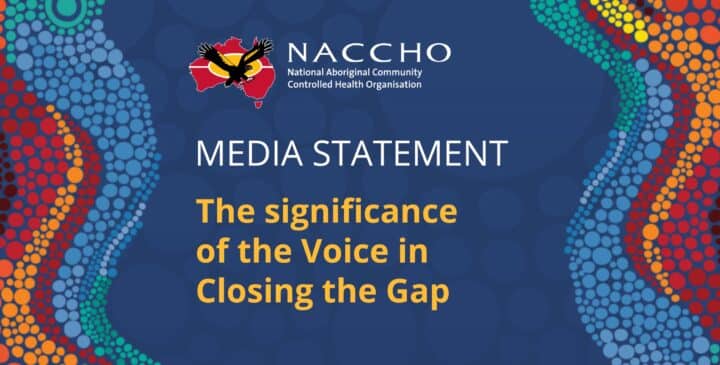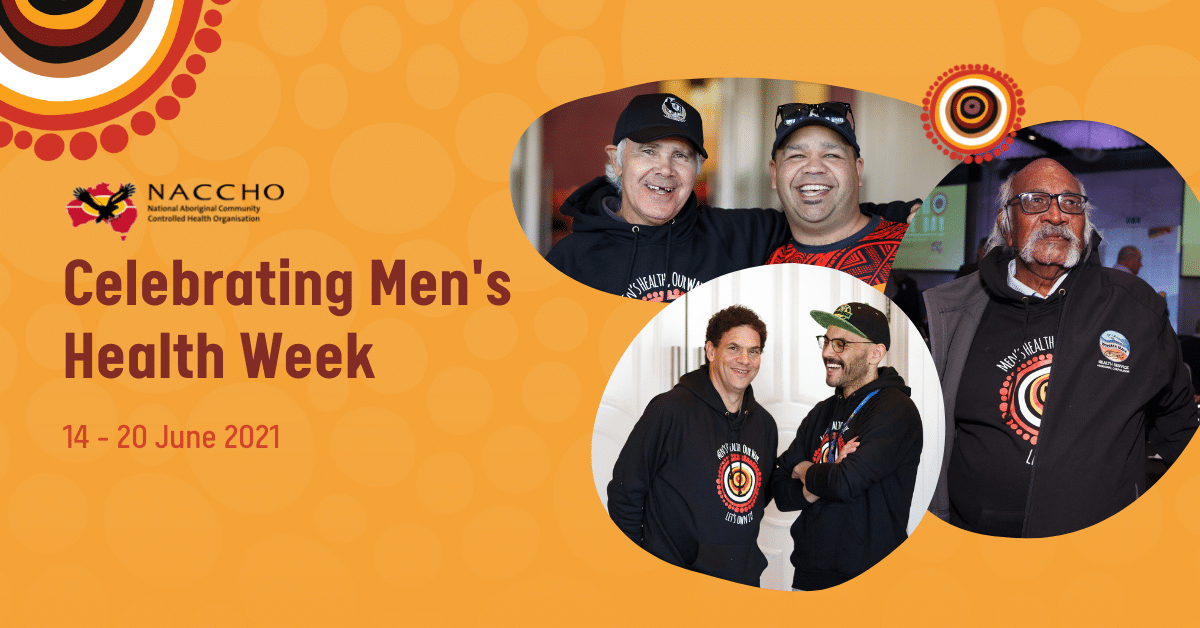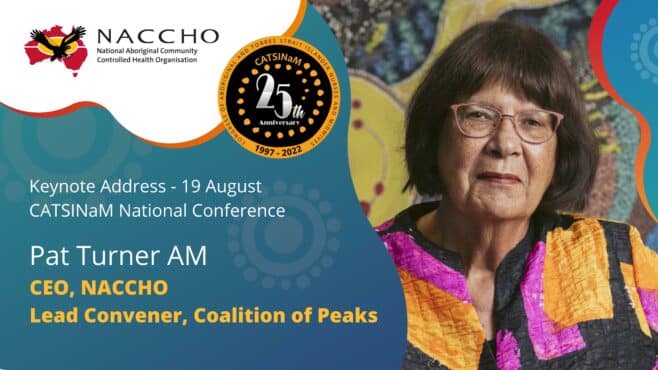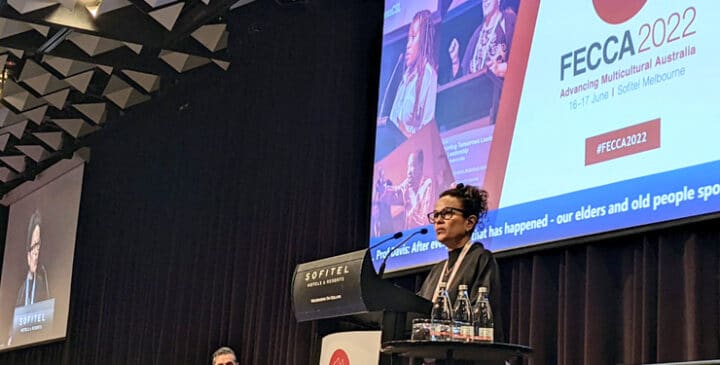

Closing the Gap in Aboriginal and Torres Strait Islander male health 2021
The National Aboriginal Community Controlled Health Organisation (NACCHO) celebrates Aboriginal and Torres Strait Islander male health and wellbeing. It upholds traditional values of respect for the lore, Elders, culture and traditions, responsibility as leaders and men, holders of lore, providers, warriors, and protectors of families.
Aboriginal and Torres Strait Islander people can be more susceptible to poor mental health and suicide due to discrimination, economic and social disadvantage, and the ongoing trauma or impact of past events and policies. Connecting to land, culture, spirituality, family, and community can help support strong mental health and wellbeing for Aboriginal and Torres Strait Islander people.
NACCHO Chair Donnella Mills said, “The commitment of our Aboriginal Community Controlled Health Organisations (ACCHOs) is to support Aboriginal and Torres Strait Islander males to live longer, healthier lives by providing a wide range of preventative and early intervention men’s programs that address critical social and emotional issues that our men face.
“The overall aim is to reduce the rate of hospitalisations, which is almost three times higher than for other Australian men and to reduce the number of Aboriginal men in prison who are imprisoned at 11 times the rate of the general male population.”
“I would urge our Aboriginal and Torres Strait Islander men to focus on their overall health, especially after the COVID-19 outbreak and stay up to date with a comprehensive annual 715 health check at their nearest ACCHO. Annual health checks are crucial in picking up little things before they become worse, give peace of mind, and best of all, they are free.”
Ingkintja Male Health Service at Congress ACCHO in Alice Springs
Ingkintja: Wurra apa artwuka pmara is an Aboriginal Male Health Service at the Central Australian Aboriginal Congress that takes the lead in providing cultural activities and social and emotional wellbeing services for male health for many years. The ACCHO delivers a full suite of medical care complemented by social support services with an emphasis on preventative health with an annual 715 health checks, servicing over 1,000 men every year.
The Ingkintja ‘Men’s Shed’ along with male-only facilities (showers and laundry facilities) and gym enable males, both young and old, to come together and access fitness, comradery and practical life skills. A psychologist and Aboriginal care management worker are available through Ingkintja,
allowing therapeutic care on counselling, violence interventions, cultural and social support to men.
Ingkintja also delivers the Jaila Wanti prison to work program, which provides support to Aboriginal prisoners 90 days prior to release and post-release to reintegrate back into the community through the coordination of health, wellbeing and social support services. Male prison transitional care coordinators work with clients and facilitate linkages with employment and training providers. The team establish trust and respect and assist in reconnecting the men with family and culture, to reintegrate them into the community.
Through the program, Ingkintja delivers regular visits to Aboriginal prisoners in the Alice Springs Correctional facility, conducting sessions with Aboriginal prisoners on their holistic health and wellbeing including health promotions with a focus on staying off the smokes and alcohol.
Corrections staff have provided encouraging feedback on the positive impact that these visits have on the Aboriginal prisoners, noting changed attitudes and behaviours as the men reflect on the impact of their actions and ask for the next Ingkintja session.
~ END ~

